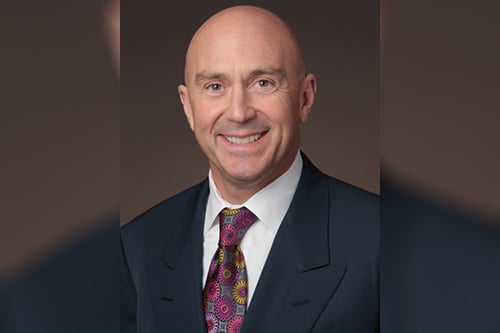Broadmark Capital, a commercial mortgage REIT says they’ve been able to continue lending and remain committed to their borrowers

Even with the pullback in construction and development lending across the U.S. as disruptions from COVID-19 slow the industry,Broadmark Realty Capital , a commercial mortgage real estate investment trust (REIT) reported a healthy first quarter for 2020.
“Our first quarter results demonstrate the strength of our operational model and balance sheet. Our originations were in excess of $100 million. We also launched our private REIT, which is actively raising capital to fund participations in our loan originations,” said Jeff Pyatt, president and chief executive officer of Broadmark.
When the coronavirus pandemic first started, many lenders began pulling or freezing their financing due to liquidity issues, resulting in a lot of builders and developers being challenged to secure funding on new and current projects. However, Pyatt said that Broadmark was able to stay committed to working with their borrowers and keeping all their commitments during this challenging time.
With interest rates as low as they have been, the mortgage market has yet to really stumble and the homebuying markets haven’t been as affected, he explained. He remains confident that additional housing will be needed as we emerge from this crisis.
“There's been some pullback by some national builders and that has really exacerbated the imbalance between supply and demand. In the Seattle market, a $500,000 starter home is still seeing multiple offers.”
Even though construction was able to continue in most states, all markets across the country have been affected by interruptions and stoppages. More than half of multifamily developer respondents reported construction delays, according to the National Multifamily Housing Council (NMHC) COVID-19 construction survey. Of this group, 85% reported delays in permitting due to COVID-19.
“We're still hearing of subcontractors that don't want to come back to work for fear of contracting the virus. City inspectors are slow getting out and projects are taking longer; what might have been a seven-month home build will likely be an eight- or nine-month home build,” said Pyatt.
From a lending perspective, he says Broadmark is making sure to build in some extra construction time to recognize that while everything is still moving forward, it’s taking a bit longer.
A new report by Moody Analytics says the crisis might result in more people moving away from big cities and into smaller communities nearby, affecting multifamily construction activity. The latest National Association of Home Builders (NAHB) homebuilding index found that residential construction is increasing at a higher rate in smaller cities and rural areas compared to major hubs. Pyatt says from a construction industry standpoint, the markets they service are still doing well.
“Our Atlanta office, which lends in the Carolinas, Georgia, Florida and Tennessee, continues to see strong volume,” said Pyatt. “We loan out of the Mid-Atlantic region, and Washington DC and we are optimistic.”
One reason that Broadmark was able to maintain such strong results through the first quarter was preparedness. The company was born out of the Great Recession, so it has always been a priority to have enough cash to keep commitments to borrowers.
“When COVID first hit, we further took our cash reserves up, and at this point, we are starting to allow them to go a little bit more to the normal side for us. But again, we know that on a moment's notice, we have enough cash to complete every project on our books.”
Pyatt says single family home purchases seem to be holding up fairly well, and they are keeping a close eye on multifamily opportunities.



